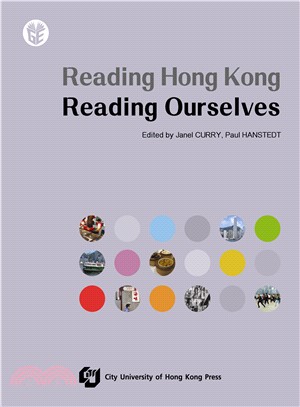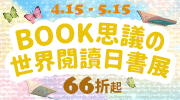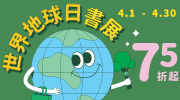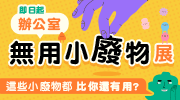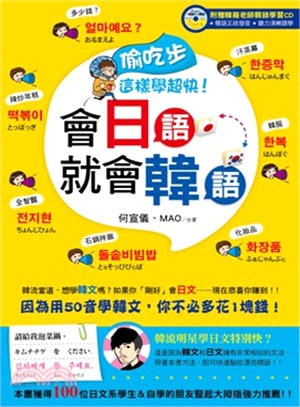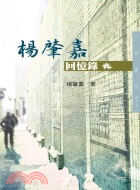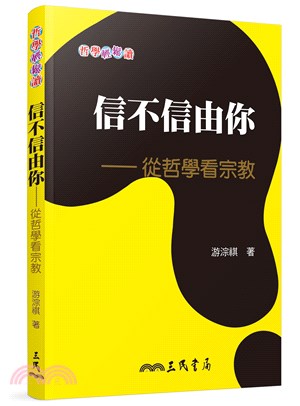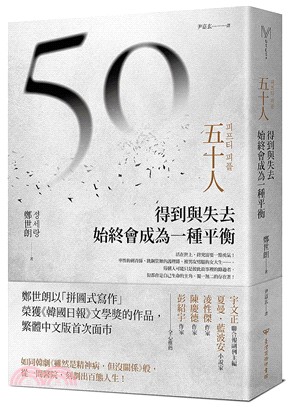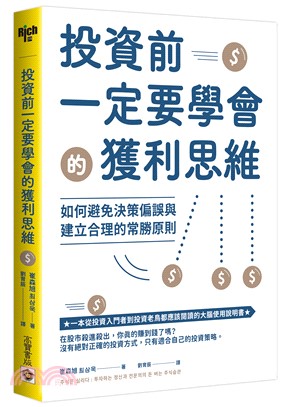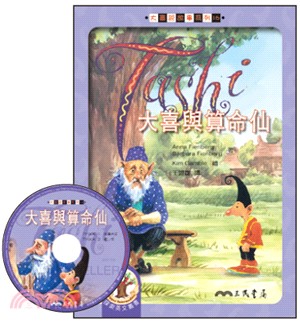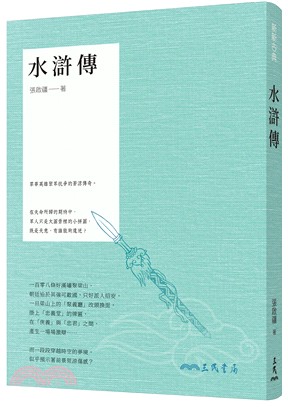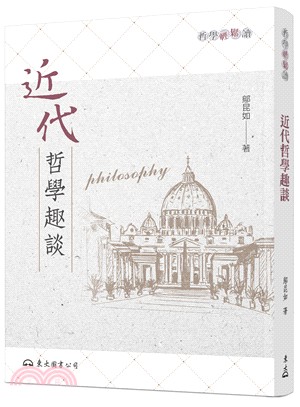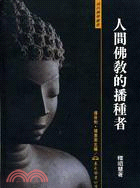Reading Hong Kong, Reading Ourselves
- ISBN13:9789629372354
- 替代書名:閱讀香港,我們自己讀
- 出版社:香港城市大學出版社
- 作者:Janel CURRY; Paul HANSTEDT
- 裝訂/頁數:平裝/224頁
- 規格:21cm*16cm*1.5cm (高/寬/厚)
- 出版日:2014/06/01
商品簡介
Books about cities can open pathways to discover new places, and familiar places anew. Hong Kong is a much visited place. Over 50 million people stream through its hotels, restaurants and shopping malls each year. That is a lot of first impressions!
This book, written by fourteen reflective scholars about living and learning from Hong Kong, builds on the growing interest of using “place” as text while providing a model of deepening cross-cultural encounters. Each chapter is written in a personal and experiential style, exploring Hong Kong through the lenses of a range of disciplines that shaped individual author's perceptions and encounters.
The city is like a text one reads and deciphers, linking one’s sense of other cities with one’s present experiences of this city in this moment of time. In reading the city, readers discover not only what is “out there” in the ever moving surround of Hong Kong’s urban life, but also what is inside oneself as newcomer and as from another city and culture.
作者簡介
Janel CURRY has been serving as Provost of Gordon College in Massachusetts since 2012. Prior to going to Gordon College, she was Dean for Research and Scholarship and Professor of Geography and Environmental Studies at Calvin College, Grand Rapids, Michigan. Curry was a Fulbright Scholar in General Education at City University of Hong Kong in 2010 and returned to continue her work with City University in 2012. She has also held a Fulbright Fellowship to Canada.
Paul HANSTEDT is a Professor of English at Roanoke College and the author of two books: Hong Konged, a travel memoir, and General Education Essentials, a faculty introduction to current trends in liberal education.
目次
Stage One: Initial Encounters
1. Eating Hong Kong: The Experiences of a Food Lover and Nutritional Scientist
—Hedley FREAKE
2. Street Level Sociology in Hong Kong
—David JAFFEE
3. Philosophy in the Streets: Walking in Hong Kong
—Gray KOCHHAR-LINDGREN
Stage Two: Seeing
4. Hong Kong: Cultural Transformation of the Public Sphere
—Tricia FLANAGAN
5. The Other Side of the Postcard:Navigating Linguistic Landscapes in Hong Kong
—Jackie Jia LOU
6. Discovering Hong Kong through Movement
—Elizabeth HUEBNER
Stage Three: The Search to Find and Understand the “Authentic” Other
7. Reflections on Geography, Hong Kong, and Beyond
—Janel CURRY
8. The Colonial Past in Hong Kong’s Present
—David A. CAMPION
9. Hamlet in Hong Kong
—Joseph CHANEY
10. Are You in the Safe Zone? Cultural Sensitization and Religion for a Teaching Traveler
—Ivette VARGAS-O’BRYAN
Stage Four: Learning and Communicating in Place
11. How Good Am I? Self Evaluation in an Examination Culture
—Christopher DENEEN
12. Reflections on Learning and Teaching in Hong Kong
—Susan GANO-PHILLIPS
13. Rhetoric and the Art of Mid-Level Administration in Hong Kong
—Paul HANSTEDT
Stage Five: Cross-cultural Movements
14. Seeing/Doing Chinese History from Two Sides: Hong Kong and the United States
—David PONG
書摘/試閱
When I came in 1988 to live in Hong Kong, I read Jan Morris’s new book, Hong Kong, as a treasure of discovery. The coming handover from Britain to China in 1997 was much in the air. Her easy descriptions of people and places created vivid moments of a city living on the cusp between its British colonial past and its Chinese mainland future. Her book shaped my experience of my new home. I returned to her chapters like returning to favorite neighborhoods. She clearly loved Hong Kong, and so did I.
Thirty years later I read City Between Worlds: My Hong Kong by Leo Ou-fan Lee. I marveled at how Leo Lee could show me how to re-see the city and its neighborhoods that I had long come to assume was home. Leo Lee’s sense of history, literature and film, converging from East and West, built up layers of new meaning in his roamings and readings of buildings, streets and the flow of people in intricate, fluid, urban spaces. Lee’s book re-enchanted Hong Kong for me. He led me to new conversations with the city I had stopped seeing as new.
Books about cities can open pathways to discover new places, and familiar places anew. This collection of fresh essays by fourteen reflective visitors about living in and learning from Hong Kong is chock full of discoveries for the new visitor to Hong Kong, and for the old hand who wishes to see his familiar city anew.
A great global city reshapes and renews itself. This morphing takes place not only in its physical landscape and features of infrastructure, but in the experiences it offers to sojourners who come and stay awhile. Visitors bring new ways of looking, questioning and appreciating the life of its people and institutions. This book of fourteen essays reveals the life of Hong Kong through their diverse academic disciplines of seeing, inquiring and expressing what they discover.
These fourteen “flaneurs,” each ambling about different sections of the city, share their insights in finely-honed, first-person prose. A “flaneur” is someone who walks unhurriedly through an urban landscape, following serendipitous promptings, and gazing at whatever presents itself for reflection. Each of these fourteen flaneur frames reveals the same city in surprisingly different ways. This is a tribute to its two editors, a geographer (Curry) and a literature scholar (Hanstedt). All the writers knew one another through their work at different Hong Kong universities on the Fulbright Hong Kong General Education project (2008–2012). We are grateful to Mr. Po Chung who made gifts to the universities to host these academic guests and absorb their ideas about general education in the new four-year curriculum. A delightful spin-off from this project, this book exemplifies what general eduction can be: bringing many unique perspectives into focus to allow us to understand a common theme in depth. In this case, the theme is Hong Kong.
Reading Hong Kong, Reading Ourselves emerged from the regular sharing of their myriad encounters with Hong Kong life and society. This helps to give the book a coherence, and a strong measure of fun as they learned the byways and back streets of their new city. One can imagine their many evenings of restaurant meals and rich story-telling that later firmed into the chapters of this book. In subtle ways, the writers refer to one another across their narratives, welcoming their complementary contributions to the whole.
Reading Hong Kong shows how subjective a city is. The thoughtful visitor brings his or her own ways of seeing into play when knowing a place layer by layer, for the first time. The deeper the observer penetrates and discovers the inner patterns of Hong Kong life, the more we come to know, as if in a cultural mirror, the author and sojourner of each essay. Each is making their own Hong Kong. But as they all touch in some way on underlying truths about life in our city, we smile with recognition. The city is like a text one reads and deciphers, linking one’s sense of other cities with one’s present experiences of this city in this moment of time. In reading the city, the reader discovers not only what is “out there” in the ever moving surround of Hong Kong’s urban life, but also what is inside oneself as newcomer and as from another city and culture. Each essay writer brings to this creative book his or her education, personality, temperament, and home place of contrast. But little is predictable given the amazing serendipity of the way a place and person interact to create a mutual identity, if only for a day, a month, a year, and if you are lucky, even a lifetime.
Hong Kong is a much visited place. Over 50 million people, many from mainland China, stream through its hotels, restaurants and shopping malls each year. That is eight times our local population. We are told many more will visit our city in the future. That is a lot of first impressions! We sense well-worn stereotypes about Hong Kong from this happy, chamber-of-commerce viewpoint. But Hong Kong may be at risk of not just being “over-run” by visitors, but also “over-seen” without being understood by our guests. Hence the value of the few visitors who take their time here, go to unexpected places, ask funny questions, and by imagination think carefully what it might be like to be a Hong Kong person. Their ideas are small mirrors in which we might catch a new glimpse of ourselves as Hong Kong people. They do us a favor.
During thirteen years from 2000 as head of the Hong Kong America Center, I have had the pleasure of welcoming and orienting many young scholars and students who came to live, teach, and study in Hong Kong's universities. I encouraged each exchange visitor to discover their own Hong Kong and find ways to give voice and language to these experiences. A city is an endless running collection of commentaries about itself through such visitors who aim to get under the skin of the city. Let us reciprocate the hospitality that the people of this city have shown us through well-considered story-telling. That is what we have here. I commend this book to your reading of Hong Kong and, like these authors, your reading of yourselves in the process.
Glenn SHIVE PhD
United Board for Christian Higher Education in Asia
主題書展
更多主題書展
更多書展本週66折
您曾經瀏覽過的商品
購物須知
為了保護您的權益,「三民網路書店」提供會員七日商品鑑賞期(收到商品為起始日)。
若要辦理退貨,請在商品鑑賞期內寄回,且商品必須是全新狀態與完整包裝(商品、附件、發票、隨貨贈品等)否則恕不接受退貨。




